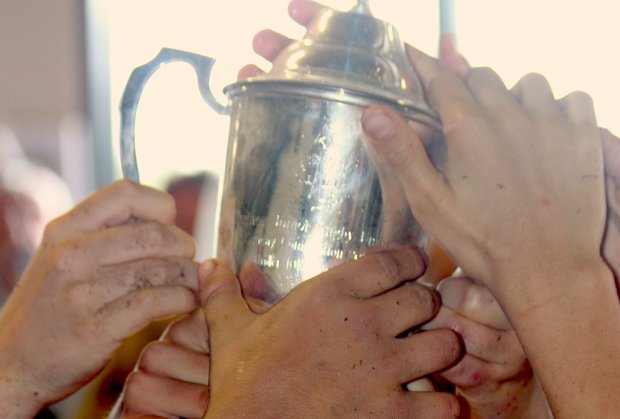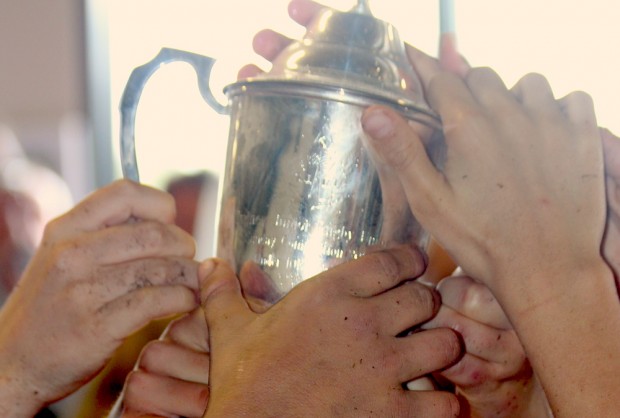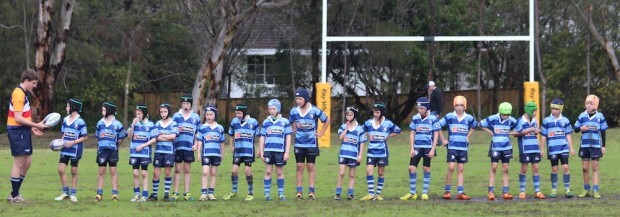This year I followed a club rugby team that won every match they played, including the Grand Final. By the end of the season they had scored 291 points for and only had 64 points scored against. It was an impressive record, but the way the coaches ran the team – in stark contrast to many teams, including others in the same club – stood out.
Having had the privilege of talking to some top professional coaches in my time, these commandments of coaching rugby they implemented rang true, but are so often not followed – so I thought I’d capture them here.
Commandment 1 – No dickheads
Yeah, we’ve all heard it before, but how often does it really shape selection policy? Usually the rule gets bent for those couple of star talents who have got way ahead of themselves and don’t think the laws of the universe apply. But hey, they’re game breakers right? As Wallaby fans from the Dingo era we’ve seen the fallout from this all too closely.
In grading at the beginning of the season, the two coaches of this team – Jason and Wayne – made their prime selection priority one question: can this player listen and learn?
Throughout the season they reinforced it. When a player – who later turned out to be their number one ball carrying back row – started running sideways in an early season match, he found himself the next grade down the following week. He didn’t need to be told twice.
No one involved with the team has any doubt that this one policy was the biggest factor in success. While the defence was always good, as the pressure came on towards the end of the season it lifted another level in each match. By the grand final it was an iron curtain which held the second best team in the comp to nil. These players were playing for each other and nothing spurred them on more than not wanting to let down their 14 mates.
Commandment 2 – A simple game plan
And I mean dead simple. The simplest – at least X hitups before you go wide. That was it. No play books or intricate moves and under pain of de-selection, no kicking. The plan was to make space for the two fast wingers and it worked.
In the pissing rain of the semi-final they didn’t even bother going wide, grinding the opposition into the mud. Every player knew their role because it was simple, and because it was simple the skills improved over the season. Clean outs were lauded as highly as tries scored.
Commandment 3 – No drills
In all the training sessions and extended warm ups I observed, I never once saw a ‘drill’ – where players execute skills repetitively in a non-game situation. By far the majority of the time was spent in live game situations, with coaches offering encouragement and correction where needed.
There was also strong focus placed on set pieces including an unusual amount of time spent on re-starts. For a game plan based on ball in hand, possession was key and the scrum was used as a method for turning over ball.
Lastly
The team was the U10 Mosman Sharks and yes, my son was in it. Some of you will now be thinking – ‘yeah, but it was just kids’. I believe that it was even more remarkable that these simple philosophies can make so much impact on such young players; it proves the integral truth within them.
A final anecdote to the ethos of the team.
When it came to awards day, all teams were asked to nominate their most improved and most valuable players, which as usual, they did. That is except for the coaches of the Sharks, who said that they wouldn’t separate out who had improved over every one else, or who had been more valuable. It wasn’t that everyone was equal, but that everyone had played a unique and special role that the others could not have succeeded without. All links in the one chain.
What could be truer about Rugby?
PS – You’ll hear any pro coach talk about the importance of support staff. In our case it was Lisa the ‘force of nature’ team manager who even instigated a pop-up bar for parents on the sideline during training evenings. The best kind of team spirit.




